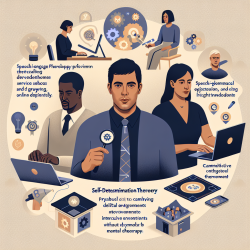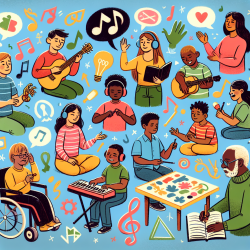Introduction
In the realm of speech-language pathology and mental health services, digital interventions are becoming increasingly prominent. This blog delves into the findings of a qualitative study on the Horyzons USA platform, an American-adapted digital intervention for first-episode psychosis (FEP). By exploring user experiences, practitioners can glean insights into improving their skills and the outcomes for children and young adults in their care.
Understanding Horyzons USA
Horyzons USA is a digital platform designed to support young adults experiencing FEP. It integrates therapeutic content with a social media framework, offering users a community space moderated by peer support specialists and expert clinicians. The platform is grounded in self-determination theory (SDT), which emphasizes autonomy, competence, and relatedness as key components of motivation and engagement.
Key Findings from the Study
The study identified seven themes related to user experiences, mapped onto the three components of SDT:
- Autonomy: Users valued the ability to engage with the platform at their own pace and discretion, although some desired a more accessible app format.
- Competence: The platform's familiar social media-like environment facilitated social competence, though some users noted challenges in navigating digital interactions.
- Relatedness: Meaningful connections with online therapists and peers enhanced users' sense of belonging and support.
Implications for Practitioners
Practitioners can leverage these findings to enhance their digital intervention strategies:
- Encourage autonomy by allowing clients to engage with therapeutic content at their own pace and providing options for personalized content.
- Facilitate competence by creating a familiar and safe digital environment that mirrors popular social media platforms.
- Foster relatedness by promoting genuine connections between clients and online therapists or peers, emphasizing shared experiences and empathy.
Encouraging Further Research
The study highlights the potential of digital interventions like Horyzons USA in supporting young adults with FEP. Practitioners are encouraged to explore further research on digital platforms to continuously improve their practice and outcomes for children and young adults.
To read the original research paper, please follow this link: User experiences of an American-adapted moderated online social media platform for first-episode psychosis: Qualitative analysis.










